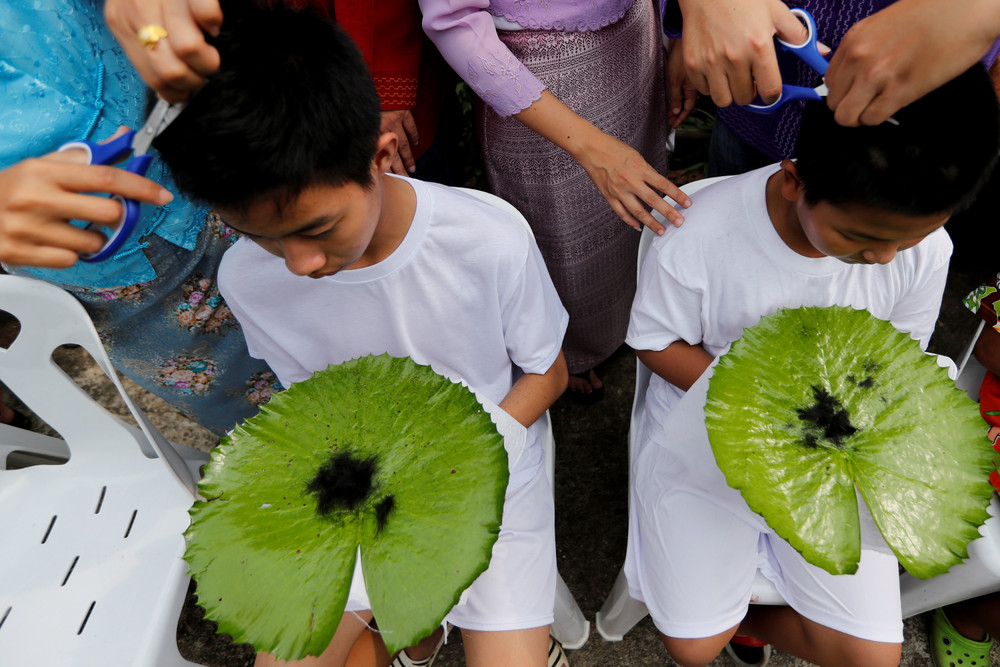|
Golden umbrellas draped in beads and flowers provide shade for boys as young as seven riding on their fathers' shoulders in a procession through the mountain town of Mae Hong Son on Thailand's northern border. Dressed in clothes dominated by neon pinks and greens with elaborate headgear, their lips and cheeks brightly rouged for the most important day of their short lives, about 50 boys advance to the lively beat of drums, cymbals and gongs. The event is a rite of passage to initiate the boys as Buddhist novices, the highlight of an annual celebration by the Shan ethnic group that lives mainly in neighbouring Myanmar, but is also spread through China, Laos and Thailand. To fulfil the dream of a son's participation in the prestigious event, parents willingly scrimp for a long time, others accept relatives' donations to defray costs, and the poorest may even send offspring to live with wealthier families. The rite of Poy Sang Long, as the celebration is known, represents the early childhood of the founder of Buddhism, Siddharta Gautama, who was born a prince about 2,600 years ago. He is said to have given up a life of royal splendour to live as a holy man after witnessing sickness and death outside the palace. Here: Boys have their hair cut in preparation for an annual Poy Sang Long celebration, a traditional rite of passage for boys to be initiated as Buddhist novices, in Mae Hong Son, Thailand, April 2, 2018. Their shorn hair is wrapped in lotus leaves and saved as a keepsake by their mothers. (Photo by Jorge Silva/Reuters)
|

